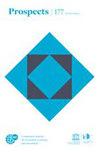Revitalizing the mission of higher education through a human rights-based approach
Q1 Social Sciences
引用次数: 0
Abstract
Abstract This article proposes that in a new social contract for education, reimagined universities should be institutions that are human rights-centered. A human rights mission incorporates conventional university policies oriented toward diversity, equity, and inclusion (DEI) but goes beyond this traditional framework by drawing attention to root causes of systemic violations of human rights (including violence within the university itself) and inclusive processes of internal reform, oriented towards social justice involving especially the voices of the most marginalized. This article begins with a presentation of the application of the human rights framework to university settings, including binding legal standards, soft policies, and a holistic framework known as the human rights-based approach. A human rights-centered university is one that will undertake change with an orientation toward deep transformation that will enable the university to fulfill its core aims to foster values such as respect, empathy, equality, and solidarity and promote active citizenship to address the pressing needs of society.通过基于人权的方法重振高等教育的使命
摘要本文提出在新的教育社会契约中,重构的大学应该是以人权为中心的机构。人权使命结合了以多样性、公平和包容(DEI)为导向的传统大学政策,但超越了这一传统框架,提请注意系统性侵犯人权的根本原因(包括大学内部的暴力)和包容性的内部改革进程,以社会正义为导向,特别是涉及最边缘化群体的声音。本文首先介绍人权框架在大学环境中的应用,包括具有约束力的法律标准、软政策和一个被称为基于人权的方法的整体框架。一所以人权为中心的大学将以深刻变革为导向进行变革,这将使大学能够实现其核心目标,即培养尊重、同情、平等和团结等价值观,并促进积极的公民意识,以解决社会的迫切需求。
本文章由计算机程序翻译,如有差异,请以英文原文为准。
求助全文
约1分钟内获得全文
求助全文
来源期刊

Prospects
Social Sciences-Education
CiteScore
13.10
自引率
0.00%
发文量
37
期刊介绍:
Prospects provides comparative and international perspectives on key current issues in curriculum, learning, and assessment. The principal features of the journal are the innovative and critical insights it offers into the equitable provision of quality and relevant education for all; and the cross-disciplinary perspectives it engages, drawing on a range of domains that include culture, development, economics, ethics, gender, inclusion, politics, sociology, sustainability, and education.
Prospects aims to influence a wide range of actors in the field of education and development, whether academics, policy-makers, curriculum-developers, assessors, teachers or students. Unlike other journals in the field, which deal only with theoretical or research-related aspects, Prospects also focuses on policy implementation and aims at improving the extent and effectiveness of communication between theorists and researchers, on one side, and policy makers and practitioners, on the other.
The journal thus welcomes innovative empirical research, case studies of policy and practice, conceptual analyses and policy evaluations, as well as critical analyses of published research and existing policy.
Founded in 1970 and published in English by Springer, Prospects is among the most well-established journals in the field. Editions in Arabic and Mandarin Chinese are available as well.
The journal is edited by the International Bureau of Education (IBE), in Geneva. A leading UNESCO Institute and a global center of excellence in curriculum and related matters, the IBE is recognized and valued for the specialist knowledge and expertise that it brings to Member States, promoting new shared global understanding of curriculum, teaching, learning, and assessment.
 求助内容:
求助内容: 应助结果提醒方式:
应助结果提醒方式:


